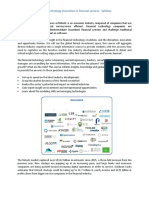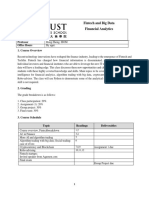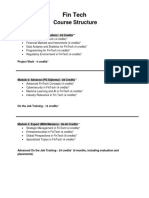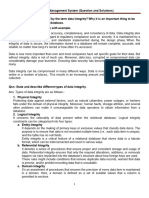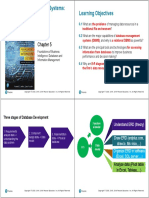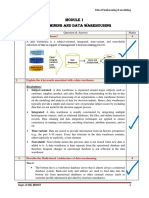0% found this document useful (0 votes)
7 views2 pagesEtf Async
The course on Emerging Technologies in Finance covered the impact of FinTech on traditional financial services, highlighting key domains such as digital payments, lending platforms, and blockchain. It also explored the role of AI, machine learning, and robotic process automation in enhancing operational efficiency and customer service. The course concluded with discussions on future trends, ethical challenges, and the importance of continuous learning in the evolving financial landscape.
Uploaded by
nabaneeta guhaCopyright
© © All Rights Reserved
We take content rights seriously. If you suspect this is your content, claim it here.
Available Formats
Download as DOCX, PDF, TXT or read online on Scribd
0% found this document useful (0 votes)
7 views2 pagesEtf Async
The course on Emerging Technologies in Finance covered the impact of FinTech on traditional financial services, highlighting key domains such as digital payments, lending platforms, and blockchain. It also explored the role of AI, machine learning, and robotic process automation in enhancing operational efficiency and customer service. The course concluded with discussions on future trends, ethical challenges, and the importance of continuous learning in the evolving financial landscape.
Uploaded by
nabaneeta guhaCopyright
© © All Rights Reserved
We take content rights seriously. If you suspect this is your content, claim it here.
Available Formats
Download as DOCX, PDF, TXT or read online on Scribd
/ 2







